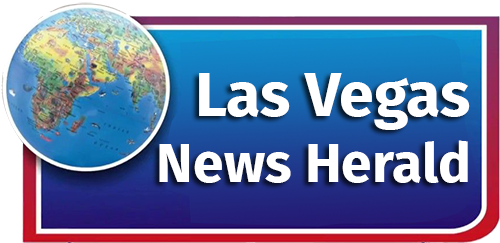Where Can We Find Resources for Education?
Education is a lifelong journey, and finding reliable resources is crucial for continuous learning. Fortunately, in today's digital age, there are numerous avenues to explore for educational materials and information. In this article, we will discuss some of the key sources where you can find resources to support your educational endeavors.
Access to quality educational resources plays a vital role in fostering learning and personal growth. Whether you're a student, professional, or someone seeking knowledge for personal enrichment, the following sources offer a wealth of information and learning opportunities.
Libraries and Books
Libraries have been an invaluable resource for knowledge seekers throughout history. These institutions hold a wealth of information in the form of books and offer various services that support education and learning. In this article, we will explore the value of libraries and the benefits of accessing their diverse book collections.
In an era dominated by digital information, libraries continue to play a vital role in providing access to physical books and resources. They serve as community hubs for learning, research, and personal enrichment. Let's delve into the reasons why libraries and books are indispensable for education and intellectual growth.
The Value of Libraries
Libraries offer numerous advantages that contribute to personal and academic development. They provide a quiet and focused environment for reading, studying, and research. Libraries foster a sense of community and serve as a gathering place for individuals with shared interests in literature, research, and learning. Moreover, libraries often organize educational events, workshops, and author talks, further enriching the learning experience.
Diverse Book Collections
One of the primary attractions of libraries is their vast and diverse book collections. Libraries house books spanning various genres, subjects, and formats, catering to a wide range of interests and reading levels. Whether you're looking for classic literature, non-fiction works, academic textbooks, or children's books, libraries offer a wealth of options. The diverse book collections in libraries ensure that there is something for everyone, fostering a love for reading and knowledge.
Accessible Learning Environment
Libraries provide an accessible learning environment for people of all ages and backgrounds. They offer free access to books, magazines, newspapers, and other reading materials, eliminating financial barriers to information. Additionally, libraries often have comfortable reading areas, study spaces, and computer terminals with internet access, enabling individuals to engage in research and self-directed learning.
Research and Reference Materials
Libraries are invaluable resources for research and reference purposes. They house an extensive collection of reference materials, including encyclopedias, dictionaries, atlases, and specialized databases. These resources assist students, academics, and professionals in conducting in-depth research, fact-checking, and expanding their knowledge in specific fields. Libraries also provide guidance on how to navigate these resources effectively, ensuring that users make the most of their research endeavors.
Community Engagement
Libraries actively engage with their communities, fostering a sense of belonging and promoting lifelong learning. They organize book clubs, discussion groups, workshops, and cultural events that encourage intellectual exchange and collaboration. Libraries often partner with local schools, colleges, and organizations to provide educational programs and resources that benefit the community at large.
Children and Young Adult Resources
Libraries play a crucial role in nurturing a love for reading in children and young adults. They offer dedicated sections and programs tailored to their needs, providing age-appropriate books, storytelling sessions, and educational activities. Libraries serve as a gateway to literature, sparking imagination, and instilling a lifelong passion for reading from an early age.
Digital Resources and E-books
In addition to physical books, libraries have adapted to the digital age by providing access to e-books, audiobooks, and online databases. Many libraries have partnered with digital platforms to offer their patrons a vast selection of e-books and audiobooks that can be borrowed digitally. This digital access to books and resources expands the reach of libraries, ensuring that readers can access materials even when physically unable to visit the library.
Libraries and books remain invaluable resources for education, research, and personal growth. They provide access to diverse book collections, create an inclusive learning environment, and engage with communities. Whether you seek knowledge, entertainment, or intellectual stimulation, libraries offer a wealth of opportunities. Embrace the treasures found within their walls, explore the vast world of books, and unlock the transformative power of reading.
Educational Websites
The internet has revolutionized access to educational resources, making information readily available with just a few clicks. Educational websites cater to diverse subjects and learning levels, providing articles, tutorials, videos, and interactive content. Websites like Khan Academy, Coursera, TED-Ed, and National Geographic Education offer a wide range of educational materials curated by experts. These platforms often include assessments, quizzes, and certifications to track your progress and enhance the learning experience.
Online Learning Platforms
Online learning platforms have gained immense popularity in recent years, offering comprehensive courses and programs across various disciplines. Platforms like Udemy, LinkedIn Learning, and Skillshare provide a vast library of video-based courses taught by industry professionals. They cover diverse topics, including technology, business, arts, language learning, and personal development. Online learning platforms offer the flexibility to learn at your own pace, making education accessible to a wide audience.
Professional Associations and Organizations
Many professional associations and organizations have dedicated resources for education within their respective fields. These resources include research papers, journals, industry-specific publications, and training materials. Joining relevant professional associations or organizations can grant access to exclusive educational content, webinars, conferences, and networking opportunities. These resources enable professionals to stay updated with the latest advancements and trends in their industries.
Social Media Communities
Social media platforms have evolved into vibrant communities that foster knowledge sharing and learning. Numerous educational groups, pages, and channels exist on platforms like Facebook, LinkedIn, and YouTube. These communities bring together individuals with similar interests, allowing them to share resources, engage in discussions, and learn from each other. By actively participating in these communities, you can access a wealth of educational content and connect with like-minded individuals.
Open Educational Resources
Open Educational Resources (OER) are freely accessible educational materials available online. OER encompass textbooks, lecture notes, videos, and other learning resources released under open licenses. Platforms like OpenStax, MIT OpenCourseWare, and OER Commons host a vast collection of OER across various subjects and educational levels. These resources are an excellent option for self-paced learning, supplementing formal education, and exploring specific topics of interest.
Local Community Resources
Beyond the digital realm, local communities often offer valuable educational resources. Community centers, museums, art galleries, and cultural organizations frequently host educational events, workshops, and exhibitions. These resources provide hands-on learning experiences, practical knowledge, and opportunities to engage with experts and fellow learners. Exploring your local community can uncover unique educational resources tailored to the specific interests and needs of your area.
Conclusion
In the digital age, finding resources for education has never been easier. Libraries, books, educational websites, online learning platforms, professional associations, social media communities, open educational resources, and local community resources all contribute to a rich educational landscape. By leveraging these sources, you can access a vast array of materials, gain knowledge, and foster lifelong learning. Remember to assess the credibility and relevance of resources to ensure you're obtaining accurate and reliable information.
FAQs
Are educational resources on the internet trustworthy?
While the internet offers a wealth of educational resources, it's essential to evaluate their credibility. Look for reputable sources, cross-reference information, and check for author expertise and peer-reviewed content when possible. Reliable platforms and educational institutions often provide higher quality and trusted resources.
Are online courses from platforms like Udemy recognized by employers?
The recognition of online courses depends on the employer and industry. While some employers value certifications from online learning platforms, others may prioritize degrees or traditional educational credentials. However, online courses can still enhance your knowledge and skills, demonstrating your commitment to continuous learning and professional development.
Can I access library resources online?
Many libraries offer online resources and digital collections that can be accessed remotely. Check with your local library for their online offerings, which may include e-books, audiobooks, research databases, and educational platforms accessible with a library membership.
How can I contribute to social media educational communities?
To contribute to social media educational communities, actively engage in discussions, share valuable resources or insights, and provide support to fellow learners. Participating consistently and offering meaningful contributions will help you establish yourself as a valuable member of the community.
Are there educational resources specifically designed for children and young learners?
Yes, there are numerous educational resources tailored for children and young learners. Educational websites like PBS Kids, National Geographic Kids, and Funbrain offer interactive games, videos, and educational content designed to engage and educate young minds. Additionally, local libraries often provide age-appropriate books and activities for children.
resources for education can be found in various forms, both online and offline. Libraries, educational websites, online learning platforms, professional associations, social media communities, open educational resources, and local community resources all offer valuable materials and opportunities for continuous learning. Embrace these resources, explore diverse subjects, and embark on a lifelong educational journey.








 English (US) ·
English (US) ·